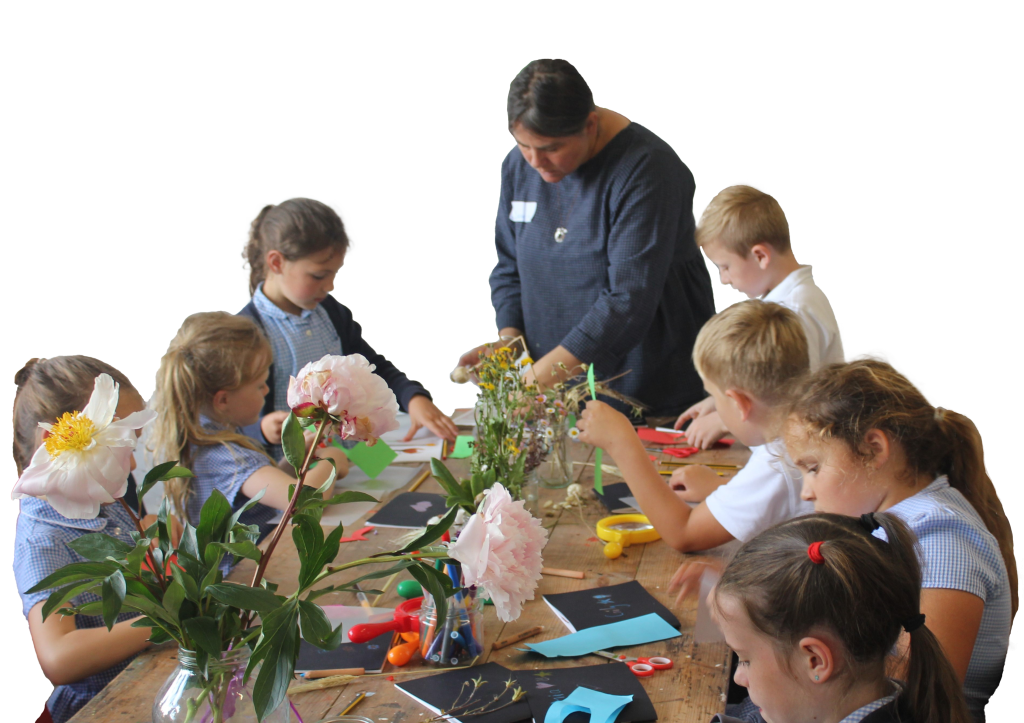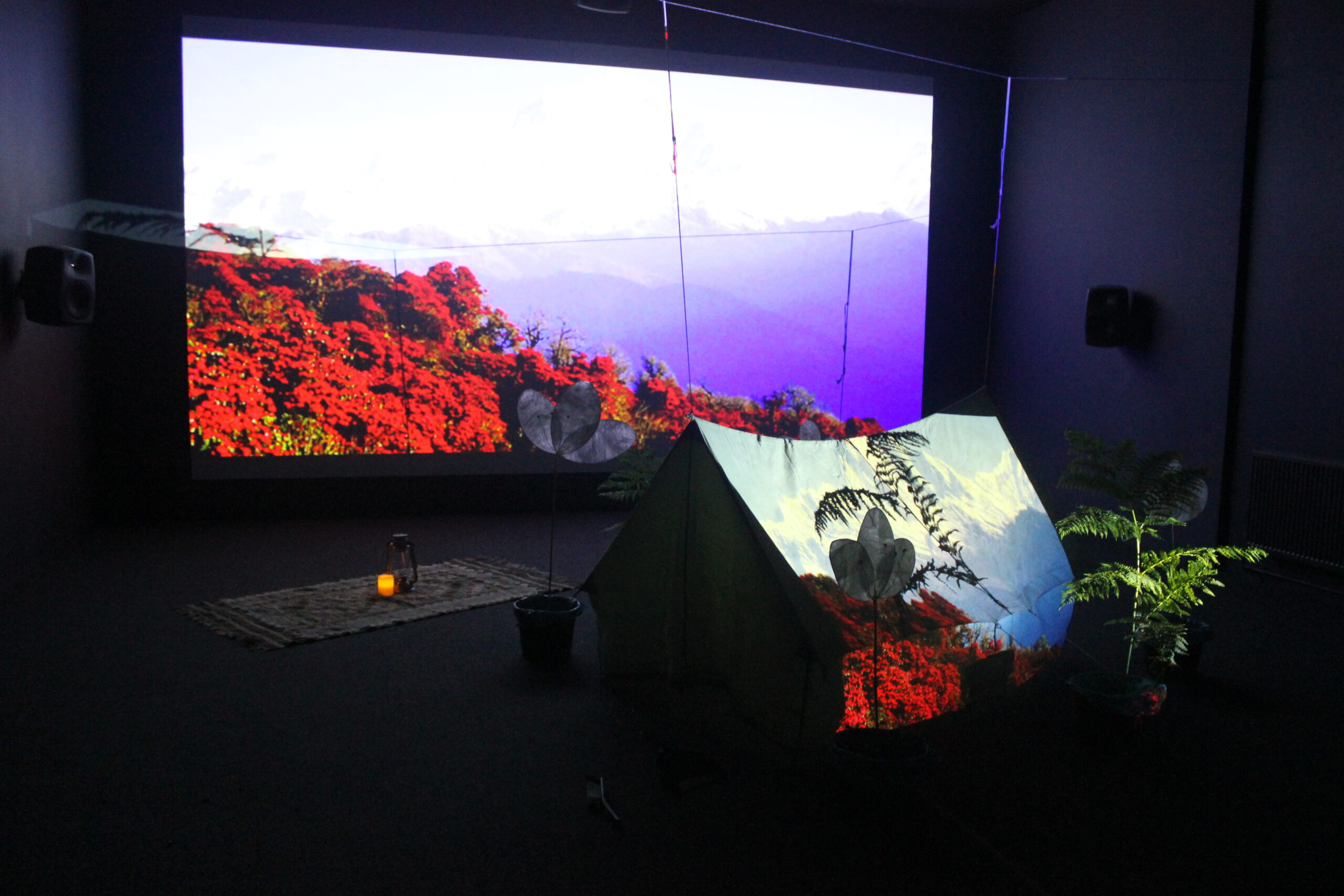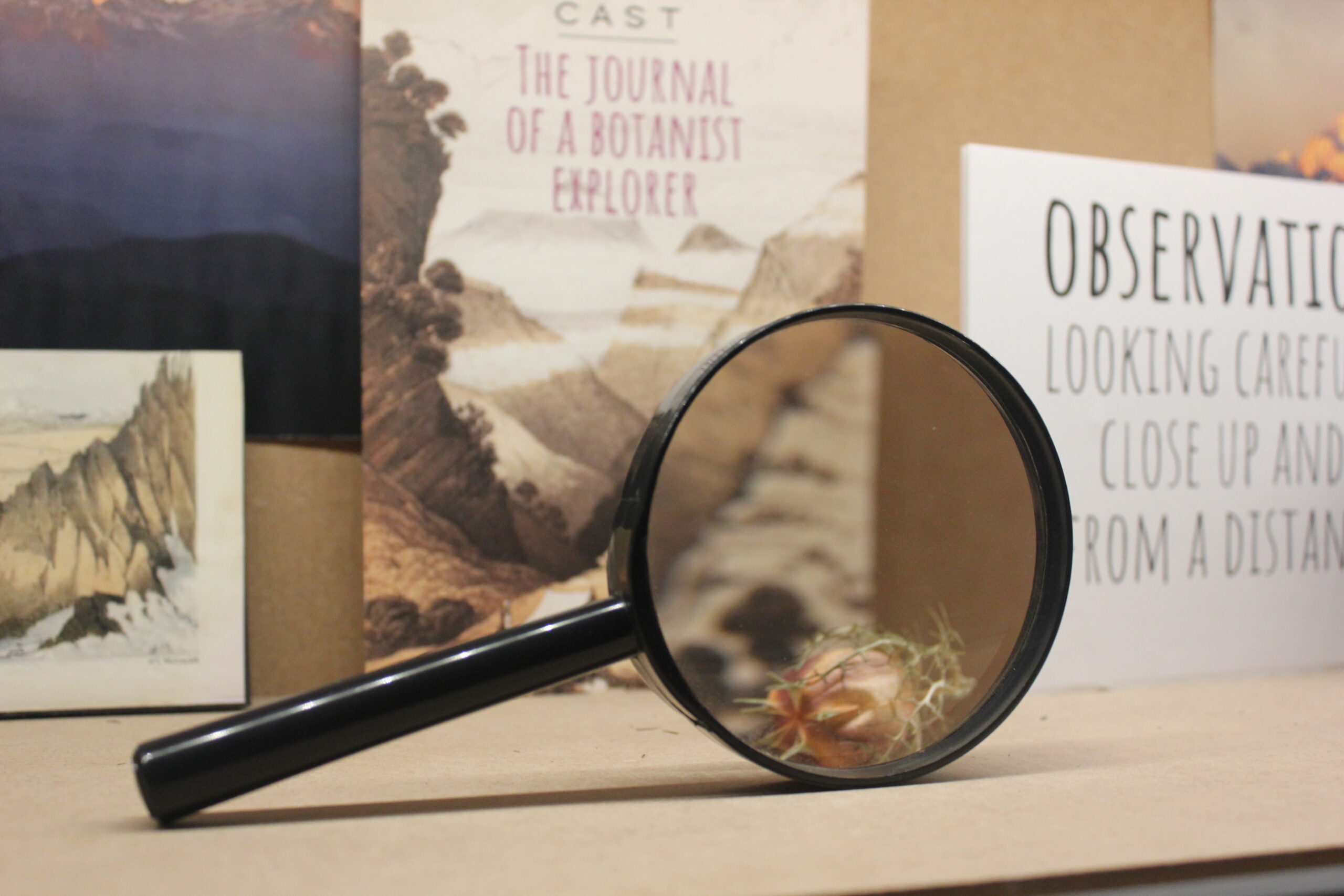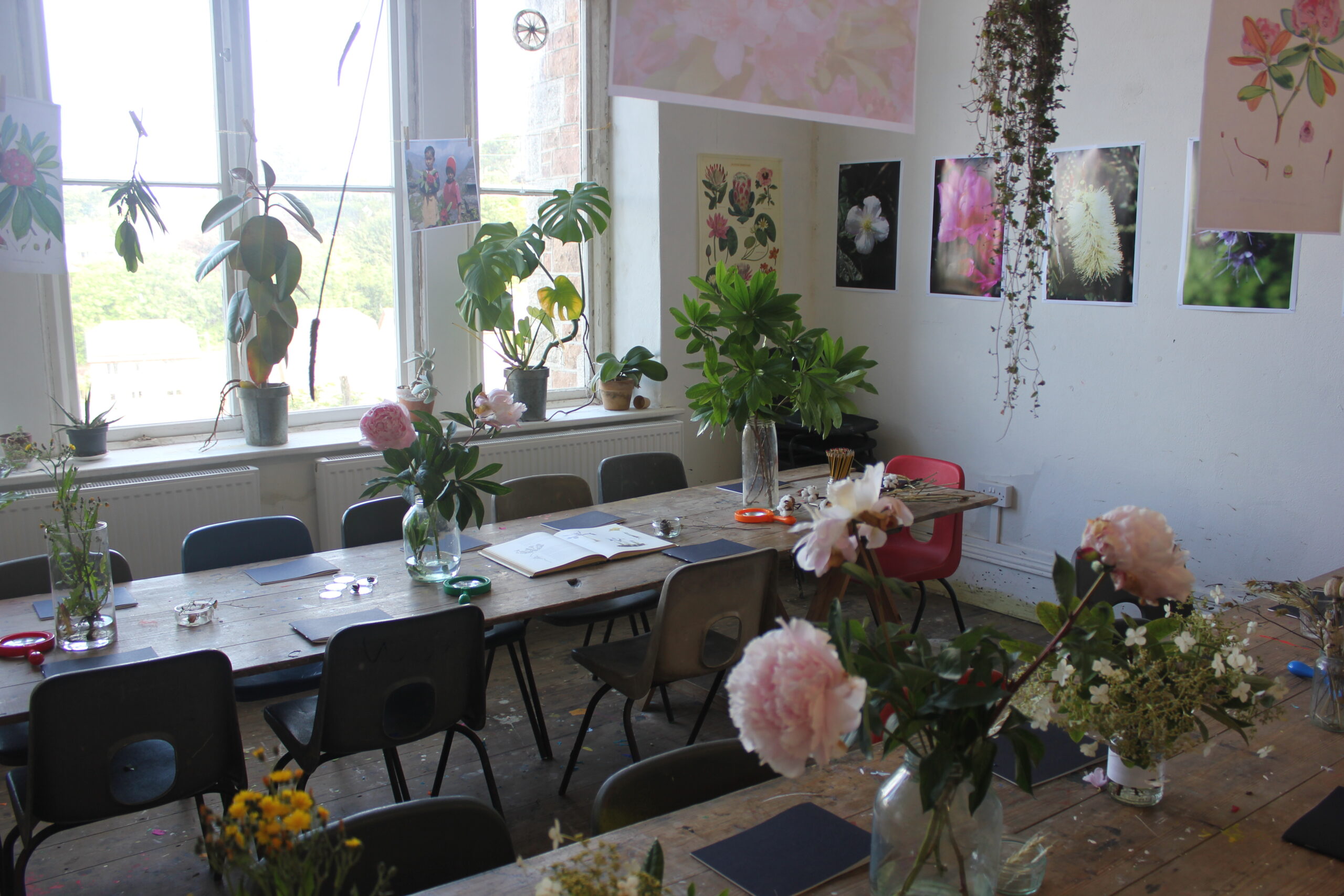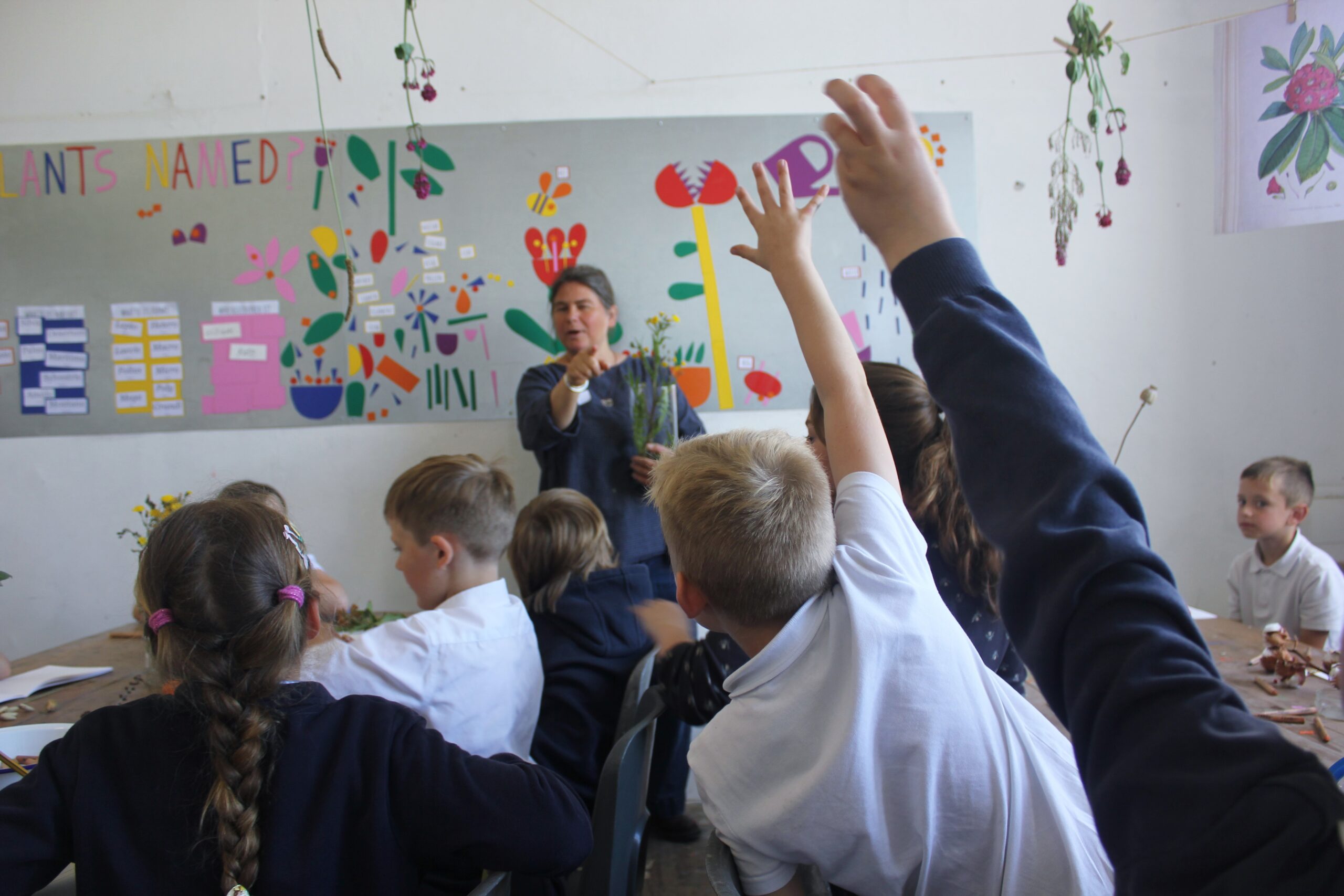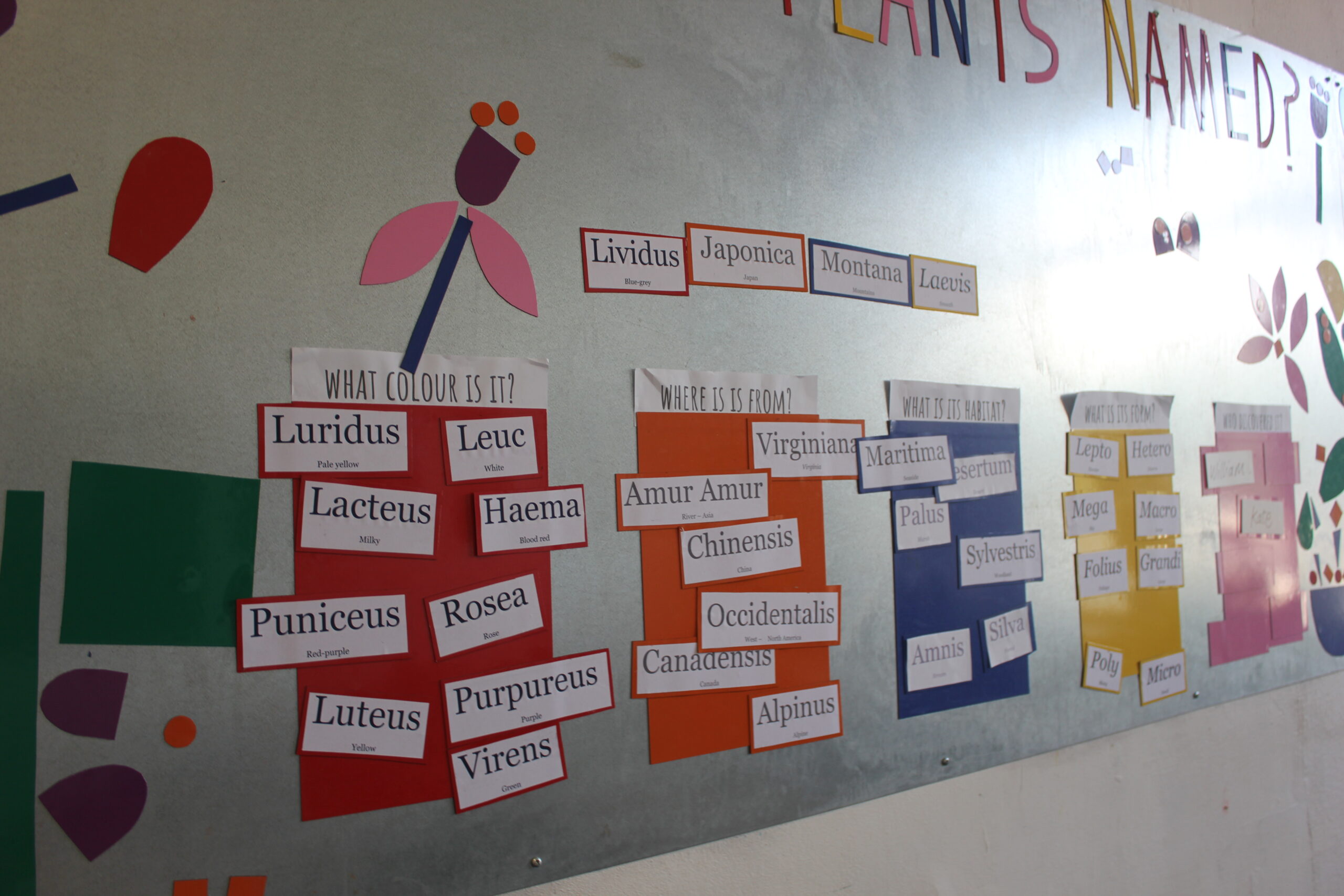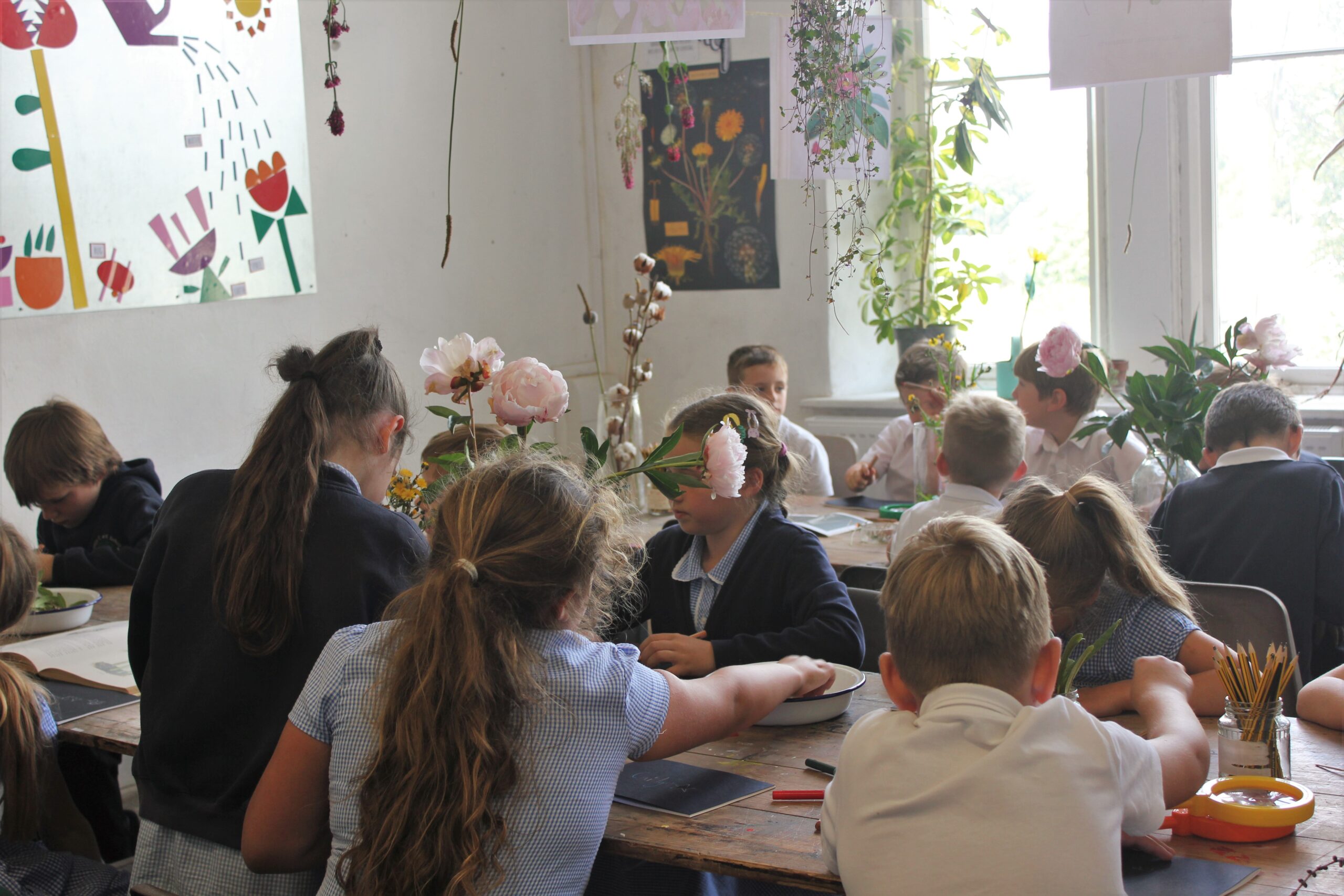In June 2019 a pilot programme of ‘Art Lab’ sessions explored the life of The (Surprisingly) Adventurous Rhododendron from the perspective of Victorian botanist Joseph Dalton Hooker, whose expeditions to the Himalayan regions of north India and Nepal led to the collection of rhododendron seeds that were later planted in many English gardens, including the great gardens of Cornwall. After the success of this pilot programme, it was offered again in spring 2024.
Each school visit started in CAST’s learning studio, which was transformed into a ‘botanical art laboratory’ with displays of specimens and materials. Activities in the studio included making paper flowers and inventing their Latin names, following the system of classification developed by the Swedish botanist Carolus Linnaeus. The children also made their own slides and examined seeds and discussed how they are distributed by wind, animals and birds.
The school groups then moved into CAST’s black box projection space for a truly immersive experience involving film projections, the sounds of trumpeting elephants, monsoon rains and a growling tiger, excerpts from the journals of Joseph Dalton Hooker and a small explorer’s tent in which they were invited to shelter when the monsoon rains broke.
Back in the art laboratory each child was given their own small book in which to start a journal, with a quill pen and ink. They were invited to draw specimens and to write about their experiences. The children took their books away with them and were encouraged to continue observing, writing and drawing in their journals.
CAST’s learning programme is supported by the UK Government through the UK Shared Prosperity Fund.
